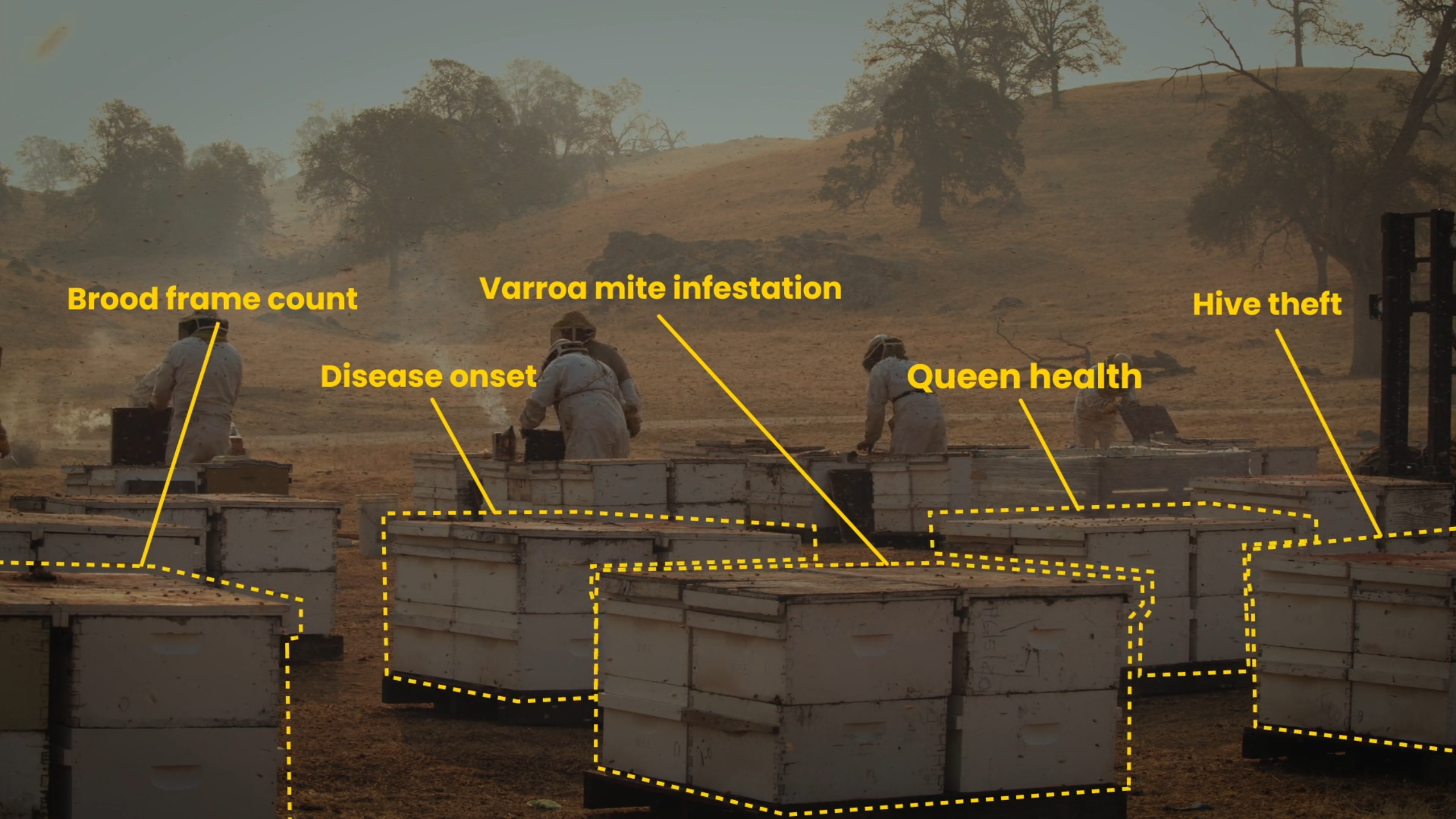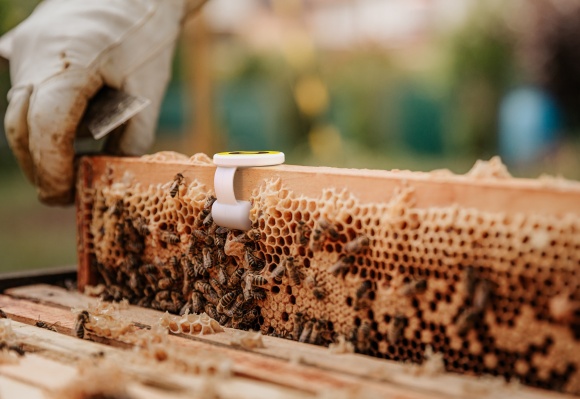Move over, precision agriculture — precision apiculture is what’s on the minds of all future-focused farmers. BeeHero has been growing fast since its debut and seed round last year, and $19M in new funding means it can scale beyond its initial markets and find more uses for its one-of-a-kind collection of data collected from thousands of active honeybee hives.
The company empowers hives with IoT tech, making it possible to track the movements and health of their bees practically in real time and catch things like mite infestations before they go too far. The result is huge improvements to crop yields, healthier hives, and less trips in the tractor. The ordinary method of placing hives and then driving out to check on them every few weeks is slow and inefficient; a hive may have collapsed during that time, or is pollinating ineffectively, condemning acres of fields to an unproductive season.
“The way pollination is handled today is challenging,” BeeHero CEO and co-founder Omer Davidi said. “There’s a shortage of hives; you get a box, you don’t know what’s inside, you just hope for the best. This is not an effective way to strategize your pollination. You need to understand the stressors, the variety of inputs and outputs… but to do this with older, less data intensive industries is hard.”

Image Credits: BeeHero
Despite the challenges of essentially launching during the initial panicked months of the pandemic, Davidi said that their traction was remarkable once they figured out how to make that connection with farmers, many of whom are slowly but surely adopting modern solutions. They’re skeptical of the benefits and understandably suspect startup founders offering quick solutions (via video calls and virtual demos, no less) of being charlatans.
“Originally I said, guys, we have to tell everyone we’ve increased sunflowers or cashews by a hundred percent! But you have to be careful. They’ve been doing this the same way for generations. When you come out of nowhere saying ‘I’ve figured it all out,’ you lose credibility immediately,” he explained. “So we had to under-promise and over-deliver, and it pushed us to build a lower touch onboarding process. Then once they see the results, they want to do it year after year.”
The work has paid off, however, and BeeHero is now working with several of the top almond growers in California, which dominates the production of that crop globally. By the end of the year it expects to manage 100,000 hives and be the biggest pollination provider in the U.S. (they’re currently the fourth largest).

The BeeHero app on a smartphone showing hive health metrics.
The $15M A round comes from ADM Capital, Rabo Food and Agri Innovation Fund, iAngels, FirstTime, J-Ventures, UpWest, Entrée Capital, Good Company, the Arison Group, and Gaingels. The company has also won $4M in grants from the European Commission, the BIRD Foundation, and the Israel Innovation Authority.
The primary goal of the raise is to expand beyond the U.S. and almonds. The plan is to expand first to berries, avocados, and apples, then to crops like sunflower and soybeans. Even greenhouse crops like tomatoes might be possible. Australia and Europe are both on the list, but it depends on partnerships and other factors, though at least the money’s there.
Davidi is hoping that the growing bee activity database will prove an invaluable resource in other ways, though he was realistic about the stage they’re in.
“As a data scientist, I can tell you: we know nothing,” he admitted. But “we” means the industry in general, and BeeHero is building by far the largest collection of bee-adjacent data out there. Knowing how hives and pollination react to different weather patterns, crops and planting styles, pesticides, invasive species (they’re watching for murder hornets) and a dozen other factors would be tremendously valuable and the company’s work is only beginning.
“For instance, we’re only just learning this, but bees know about rainfall 30 minutes before it happens,” Davidi said. Why? How? They have guesses, but whatever the case, it could be a useful data point for farmers — and probably for apiculture generally.
Research partnerships with the World Bee Project and Japan’s Ministry of Culture, among others in the academic sphere and beyond, show that there is untapped potential in this trove of data. With pollination so important to maintaining the world’s food supply and bees subject to an increasing number of threats, we’ll take any insights we can get.
Credit: Source link


Comments are closed.